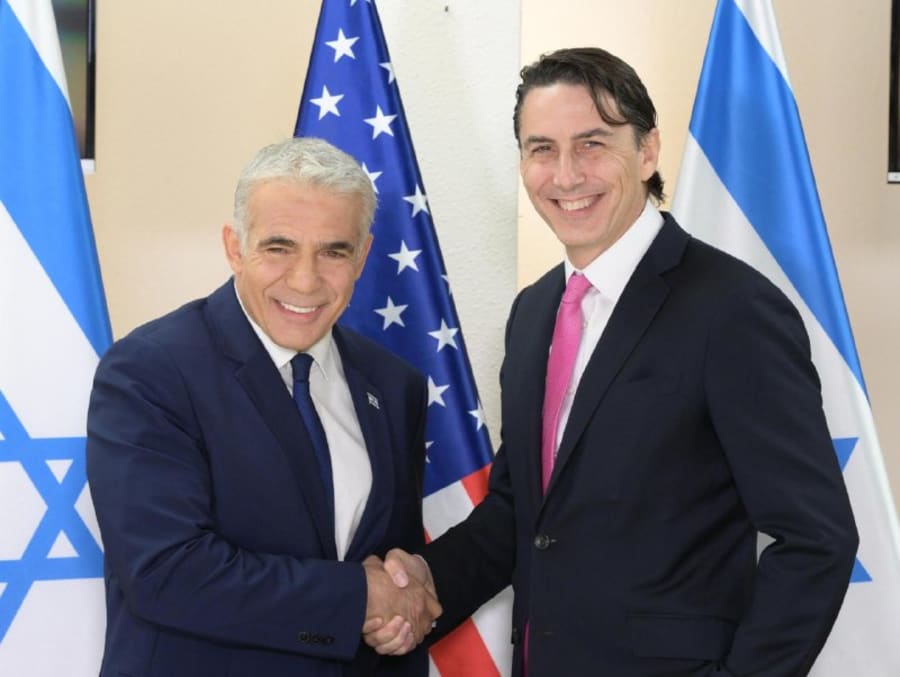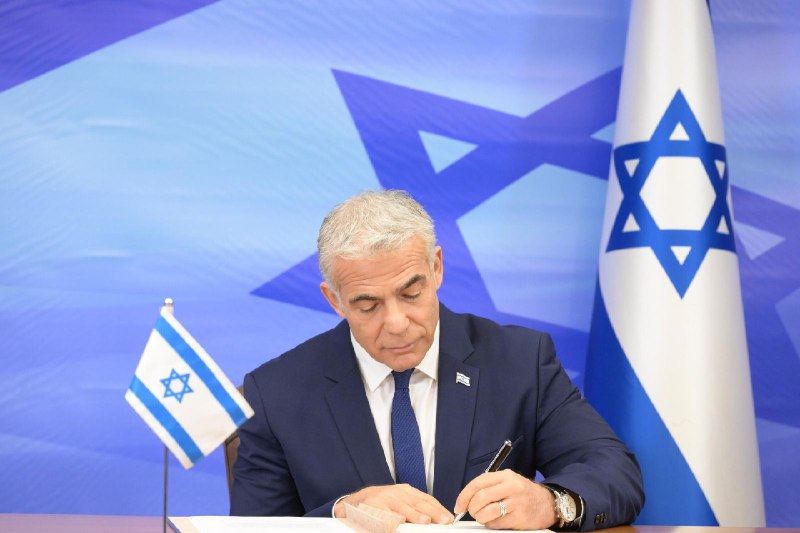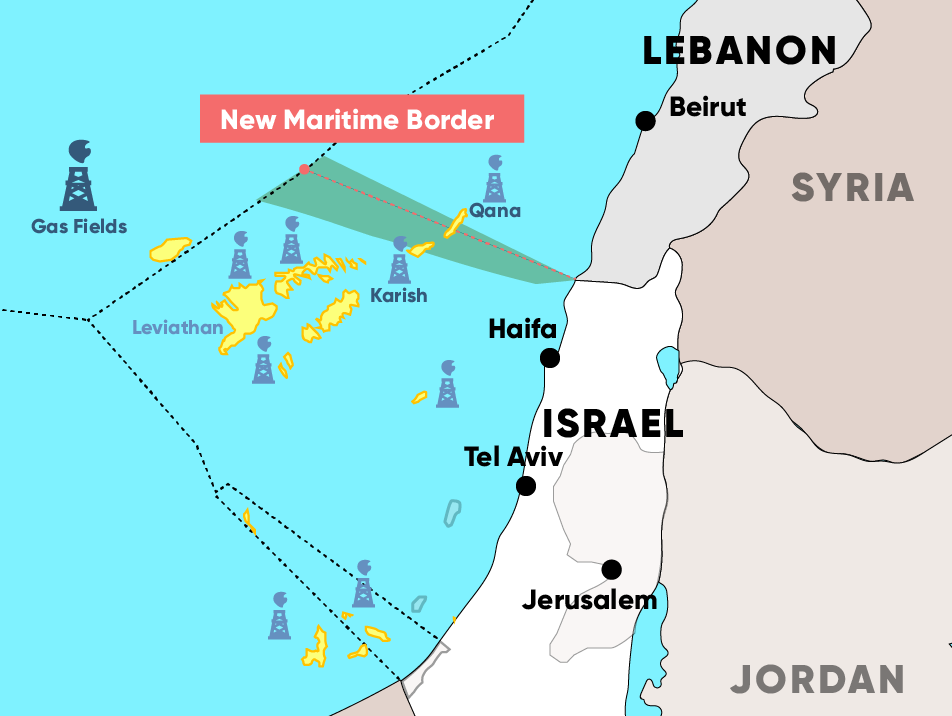'Great day for Middle East' as Lebanon, Israel ink milestone maritime border deal
U.S. envoy Amos Hochstein says this signals Israel's further "integration" into the region

Israel and Lebanon – two countries without diplomatic relations – officially signed a deal on Thursday to demarcate borders in the Mediterranean Sea.
The agreement was signed separately by both countries on Thursday as the American envoy who brokered the deal, Amos Hochstein, shuttled from Beirut to Tel Aviv.
“This is clearly a historic day for two countries that never ended their state of war,” Hochstein said, noting the unusual circumstances of the deal signing.

The agreement enhances Israel’s security and economic prosperity for both sides, Hochstein said in a press conference with Israeli Prime Minister Yair Lapid. He added that it is also a signal “of more cooperation, more integration of Israel into the region.”
Lapid thanked Hochstein and U.S. President Joe Biden “who was there for us all the way.”
“This is a historic agreement that strengthens Israel’s security and Israel’s economy and will bring stability to the region which was the No. 1 operative of the whole thing,” Lapid said. “Israel has started producing gas from the Karish (gas) field and we will become a major supplier of natural gas to Europe at a time when the world is in desperate need.”
In Lebanon, Hassan Nasrallah – head of the Lebanon-based terror organization Hezbollah – called the deal a “very big victory for Lebanon” and praised the government for not taking steps “that even smelled of normalization.”
Lebanon's Deputy Parliament Speaker and lead negotiator Elias Bou Saab said the agreement signaled “a new era.”
Detractors of the deal in Israel, led by opposition leader Benjamin Netanyahu, have said that the deal will result in more revenue lining Hezbollah's pockets and threats to Israel's security.
In an interview, Lt. Col. (res.) Sarit Zehavi, president of the Alma Research and Education Center, told the Jerusalem Press Club that she would not even call the agreement a compromise.
“This agreement is a concession if you look at that from the Israeli point of view, because Israel accepted the Lebanese position, which was the [same] position in the past decade,” she said. “This agreement doesn’t change anything in the relationship between Jerusalem and Beirut. It has no political meaning of this sense, it is not implying any normalization between the countries because Hezbollah will not enable that. The meaning of this agreement is just an economic agreement.”
The agreement was also challenged in court, but was ruled to be legal despite being ratified by a caretaker government just a week before the Nov. 1 election.
Rather than going before the full Knesset for a vote, Israel’s Cabinet voted unanimously in favor of the deal in the morning and Lapid signed off on the deal shortly afterwards in Jerusalem. Lebanon President Michel Aoun signed a letter confirming his nation’s acceptance of the deal in Baabda.
Hours later, teams from both sides signed the agreement at a ceremony at a United Nations base in Lebanon's southernmost border town of Naqoura, close to Israel.
“It is not every day that an enemy state recognizes the State of Israel, in a written agreement, in view of the entire international community,” Lapid said at the Cabinet meeting.
Hochstein emphasized that this deal should be seen as the beginning of “deepening cooperation and deepening economic prosperity.”
“If there is a prosperous Lebanon, north of the border of Israel, that is a win for everyone," he said. “This is not just a great day for Israel and its security, and for Lebanon, it's for the broader region in the Middle East and particularly the eastern Mediterranean.”

The two countries – which did not engage in direct negotiations – agreed on the final wording of the agreement earlier this month.
The final agreement puts all of the Karish gas field in Israel’s waters while most of the Qana field goes to Lebanon. Some 17% of Qana is in the Israeli maritime zone and the agreement includes a percentage of potential revenues from that field going to Israel.
Some 330 square miles (860 square kilometers) in the Mediterranean Sea – with several potential gas fields – were in question.

Nicole Jansezian was the news editor and senior correspondent for ALL ISRAEL NEWS.













